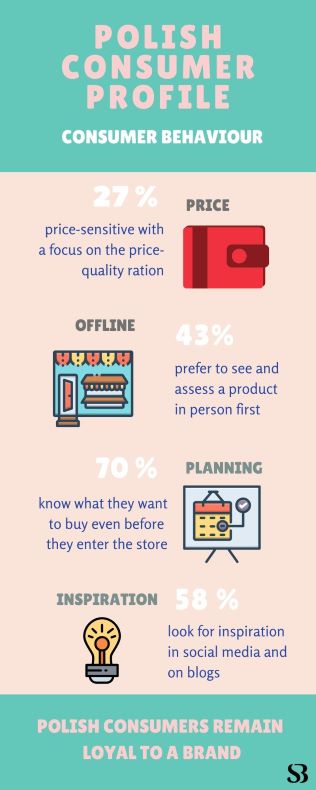5 things to do when marketing a product in Poland
Marketing is one of the key ways to reach out to a client anywhere in the world. Poland is no different in this regard. However, if your marketing campaign in Poland is to be effective, you must adjust it to the taste of a Polish client. Yes, the Poles are modern, open-minded and diversified people; yet, there are a few things that remain unchanged, namely cultural sensitivity and national identity. Therefore, when marketing a product or service to Polish clients, it must be both unique and familiar for it to be accepted.
Let’s discuss the steps you can take to make sure your marketing campaign in Poland is successful. If you incorporate the elements listed below, you will increase the chances of Polish clients welcoming your product with open arms.
Analyse the market
The Polish consumer market is diverse. Depending on your product, there are many groups you can target. Older people are more traditionalist. They focus on values such as comfort, health, and family. They can be reached mostly by radio and television. In contrast, the younger generation is more open to novelties and predominantly uses social media. Generally, consumers are more prone to buying a product or service based on personal recommendations. Plan your marketing strategy so that it incorporates the trust-building aspect, too. Conduct market research, adjust your sales channels and strategise communication.

Implement direct marketing
When employing direct marketing remember to follow the GDPR rules. In general, any unsolicited marketing is prohibited. There are also restrictions on certain types of products (such as tobacco or alcohol) and services (such as lawyers and doctors). According to the Direct Selling in Poland Report, direct selling is increasing, despite the strong growth of e-commerce. This is because many Polish consumers still value the opportunity to engage directly with the product producer or marketer. In addition, you should consider direct marketing channels, such as social media, mobiles or digital TV.
Choose your distribution
Choose the distribution channel according to the product and target market. For example, Poles tend to do their grocery shopping in smaller, local shops. In large cities, they prefer shopping malls, where they can do a variety of shopping in one go. In general, Poles show brand loyalty: they often have a single brand in mind before beginning the research process.
The younger generation is used to shopping on the Internet, comparing products and services on their mobile devices and typing on smaller screens. The Internet is seen as an important medium for reaching consumers, with a large number of Polish businesses buying and selling products online.
“Customers don’t just want another cool product or service, they want to have an experience worth sharing” – Bernard Kelvin Clive
Understand business etiquette
You are more likely to impress your Polish client if you follow proper Polish business etiquette. Basic tips include being punctual, reserved in behaviour and direct in communication. During business meetings, address people using the prefix Pan (for men) or Pani (for women) + their surname. Most advertisements, now use the informal “you” form to create a tone of familiarity and trust.
Respect cultural sensitivity
Poles, due to historical developments, strongly identify with their nationality and culture. Therefore, topics such as religion, history or politics can be controversial. Avoid cultural taboos in your slogans. Touching on religion, abortion, and sexual orientation can earn your product more controversy than sales. Also, remember that Poles have a tendency to first express negative comments, rather than focus on the positives. They also have no sense of political correctness, so they are quite open when they express their feelings.
Takeaway
Marketing a product in Poland requires developing a customised campaign. It needs to consider social, historical and financial aspects of Polish reality. With the growth of the middle class and the rising level of income, the local consumer is likely to spend more, especially for quality products. In addition, successful marketing calls for localization, so that all nuances of your communication are conveyed properly. Poles tend to put more trust in personal recommendations and word of mouth. Although they consider various factors when making buying decisions (quality, price, origin), they remain loyal to a brand that they identify as reliable and trustworthy.
Contact me to discuss your next project addressed to the Polish audience. You need a reliable translator who knows the local context well, speaks the language natively and understands all the shades of Polish reality.




